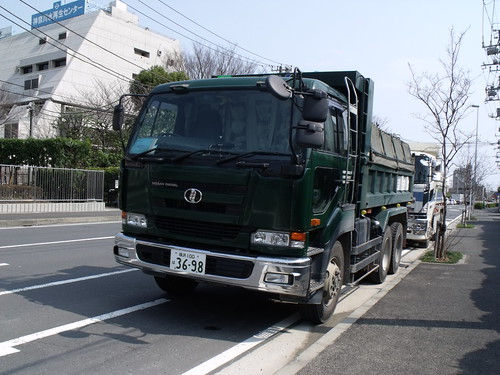The Theory of Experience
The year was 1994. The corporate English school where I was working at the time had decided to make a series of tests. The textbooks we were using came with tests of their own, but they were all of the oral interview variety. Our managers had thought that too inconvenient, so they'd decided to convert the oral tests into multiple-choice listening ones; each question would be followed by four answers to choose from, only one of which would be in correct English. Since the original tests had only the questions, that meant that we had to come up with the answer sets ourselves. And naturally, "we" wound up being "me". I didn't think that would be any problem, but apparently Mr. K, my American manager, didn't agree.
"This is so you can do research to find out the kinds of mistakes that Japanese tend to make," he continued.
I honestly thought he was joking. At the time, I'd already been working with Japanese students for at least six years, both in the USA and in Japan. I had a pretty good idea what kinds of mistakes they tended to make. Mr. K himself had been teaching English in Japan for perhaps six times that long. Surely he had heard enough mistakes over the years to have a pretty clear picture. Why would formal research even merit discussion? But he was serious, and he was adamant. Telling me to take my time, read the books carefully and be sure I understood their content, he handed me the stack and sent me on my way.
It didn't take long for me to figure out that the books were no help at all. There was an awful lot of theory, to be sure, but as far as concrete examples of errors Japanese tend to make, what I found was either painfully obvious or totally ridiculous. In other words, it was either stuff I'd already heard on a regular basis or stuff I'd never heard once among hundreds of students in more than half a decade. To make matters worse, it turned out that the authors of most of the books had never even been to Japan, let alone had any realistic experience teaching English to Japanese in a Japanese classroom, and yet here they were using all these wild theories to speculate on what I had to deal with directly day by day. And a veteran teacher with decades of experience wanted me to use these pipe dreams as the basis for my work.
Throwing the books aside with disgust, I sat down and cranked out the answer sets for the tests based on my own experience. Naturally, Mr. K was suspicious at my having finished so fast. After poring over my work, he called me to his desk.
"You didn't do the research I asked you to do, did you?" he asked with the faintest hint of sternness creeping into his eternally pleasant demeanor. "Dr. [X] said in [book Y] that Japanese mainly make mistakes with word order. You should have more word order errors in your answer sets. For example, for this problem..." He then gave me some sample errors that seemed just plain ridiculous.
"Tell me," I challenged, "in all your years of teaching, have you ever heard a single student make a mistake like that?"
Mr. K paused as if totally dumbfounded by my question. Then he replied, "Well...no, but... I guess I really haven't, but...I mean... Well... Um, anyway, Dr. [X] says so in his book, and it's generally a good idea to trust the experts!"
This is a very good example of why, though I tend to lean a bit left politically, I tend to be conservative when it comes to teaching. It's not that I'm reluctant to try new ideas; on the contrary, I've tried some "revolutionary" approaches and found some of them to be really good. But as a general rule, I have little faith in theory. I want concrete facts, or better yet, I want to see first hand what works and what doesn't. I want substance. I've seen too many bright ideas put forward by "experts" turn out to be a total bust when applied in the real world. Maybe their theories worked in certain, select conditions, but they didn't where I am. That's why, when someone starts using lots of big words and talking in terms of "ideals", I immediately turn into a die-hard skeptic.
Which puts me in kind of an awkward position right now. I mentioned in my last post that our more motivated English teachers at Ye Olde Academy right now are quoting theories while explaining why my communication course should be abolished. It turned out that there had been a few misunderstandings; they want to modify my course, not eliminate it completely. It also turns out that the theory they're promoting is the one now being embraced by the Ministry of Education and Technology (i.e. they're not just pulling it out of their rectums). It even turns out that I actually agree with some parts of it. However, the central premise of the theory contradicts what my own first-hand experience over the past two decades has taught me and even seems in some ways to be a fancy recycling of the 1980's approach. My job probably isn't going to be changing quite as much or as fast as I thought, after all, but this is still the reality I'm having to deal with now: the reality of people who ignore reality and create their own...and call it progress. This is what I have to fight against.
I'm really starting to sound like an old fart.





